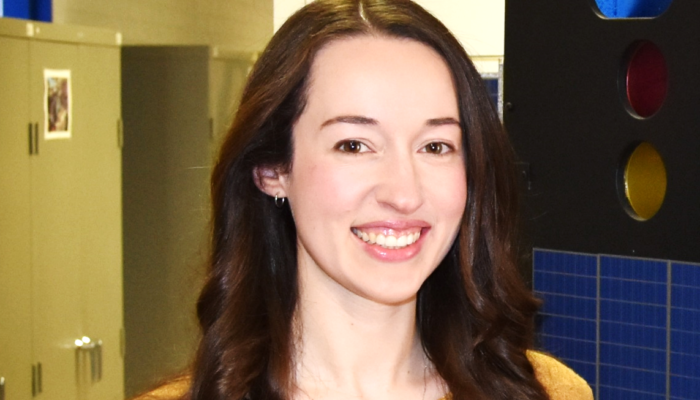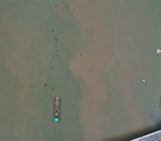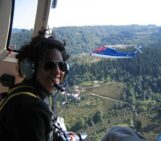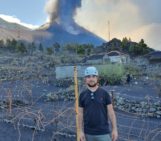
Hello Noel, thanks for joining us today! Could you tell us a little about yourself before we dive in?
Thank you so much for having me, Simon! I’m an American climate scientist currently working in Brussels as a project manager at the Royal Belgian Institute for Space Aeronomy. I finished my Ph.D. in 2013 with a project that focused on understanding how well global climate models produce rainfall and other processes related to the water cycle, and how this information can be used to make better future climate projections. Afterwards, I participated in the postdoctoral program at the NASA Langley Research Center, and I have since taken my career down a rather unconventional path!
You started your career as a research scientist before shifting to more project-management and policy-based. What motivated you to make this shift, and what steps did you take to accomplish it?
While I was working at NASA, I had the wonderful experience of serving as a scientific expert on the Hampton Roads Sea Level Rise/Flooding Adaptation Forum, a White House-sponsored event for communicating science and finding solutions for politicians and local business owners to combat local sea level rise. Through this experience, I came to realize that there is a strong lack of direct scientific guidance and expertise in policymaking activities, and my input as a scientist was very much needed and valued. Even more so, I felt that having a direct influence on the decision-making process — using my scientific background to help others and make the world a better place — was an incredibly rewarding experience. This realization motivated me to change the direction of my career.
I decided to apply for the Blue Book Traineeship program with the European Commission, which is one of the few programs of its kind that provides the opportunity to work directly in an EU government office and be part of the international team. I actually applied for the first time in 2015, and after passing the highly-competitive first round, my application was rejected for a surprising reason: because I only spoke one language fluently! Undaunted, I made the decision to end my NASA fellowship and move to Germany to take intensive language courses. 10 months later, I had achieved C1-level fluency in German, and I was ready to reapply to the Blue Book program. This time my application was accepted, and in 2017 I moved to Brussels, the heart of Europe, and began my traineeship with the European Commission.
Throughout this time, it was important to me to maintain my scientific activities. I continued to write journal articles, attend scientific conferences, and I even took a two-week leave from my German language courses to participate in a NASA field campaign in Saudi Arabia, and another week leave to organize a CLIVAR early career scientist symposium in China. It was an incredibly busy and hectic time for me, but in the end, it was absolutely worth the effort. The time I spent working for the European Commission was one of the most rewarding experiences of my career thus far, and I am extremely glad that I made the career change.
My experience consisted in working on the program management team of the Shift2Rail Joint Undertaking, serving as the lone scientific advisor for the governing body that managed the European research and innovation funding in rail technology. I grew to love the fast-paced environment, working closely on science policy issues, and being treated as a highly valued member of the management team. My climate science background was also well-utilized: I led a project to estimate the reduction of carbon emissions resulting from the investments in more energy-efficient and cleaner rail technology, the results of which were used to help guide policy for future European transportation funding. It was incredibly exciting and rewarding to see my science expertise directly influencing policy decisions. After the traineeship ended, I decided to stay in Brussels as a project manager with the Belgian government, my current position, and continue working on many different science policy activities.
The United Nations Climate Change Conference, COP26, at the close of 2021, with some of the world’s most high-profile discussions at the science-policy interface. Scientists often see themselves as knowledge brokers who communicate neutral research outputs, with little involvement beyond that. In your opinion, why are science-policy discussions, such as those that happen at COP26, something that scientists should engage with, or even care for?
The way I see it, scientist involvement in policy falls onto a wide spectrum: on one end, you find scientists with little to no policy involvement; and on the other end, you find scientists like myself, who are very actively participating in the policymaking process. My personal belief is that we need scientists at both ends of this spectrum, as well as at the extremely valuable positions in-between.
I strongly believe that for many scientists, remaining neutral knowledge brokers can be a good choice, and perhaps even a necessary one. Policy activities and public outreach take a tremendous amount of time and energy that could be otherwise spent on doing research. Additionally, there are strong arguments for why scientists should be focused on producing un-biased, high-quality research without policy influence.
However, scientists are an extremely valuable resource for informing policy and decision-making, and in many cases, our involvement is necessary to ensure that stakeholders have access to the most accurate, up-to-date information. Scientists who undergo training in science communication with the public or media are a particularly important resource for critical science-policy discussions like those at COP26. Furthermore, many scientists have told me that they began their science careers out of a desire to have a positive influence and change the world for the better. These individuals can find science policy activities particularly rewarding, as the impact is often immediate and measurable. There are so many different ways to get involved in the science-policy interface as a scientist, and I would highly encourage motivated individuals to explore existing opportunities or even discover new ones!
You’re also a member of the EGU’s Science For Policy working group. Could you tell us more about what the working group does, and how our members can get more involved in policy programmes (both within the EGU and externally)?
The members of the Science for Policy working group come from a wide variety of backgrounds and experience, but we all have in common that we work at different levels of the science-policy interface. We meet once a month to share news and ideas about what we’re working on, and to provide the EGU policy officer, Chloe Hill, with advice and expertise to guide EGU policy activities and initiatives.
For any members or non-members who are interested in getting more involved in policy programmes, Chloe has put together a fabulous database of resources and materials, as well as initiatives such as the science-policy pairing scheme! I highly encourage motivated individuals to check out the EGU policy website at https://www.egu.eu/policy/ to see different ways that they can get involved. In addition, members who attend the annual EGU General Assembly will find many different sessions, short courses, and activities related to policy and outreach. I will be personally involved in policy activities at the 2022 General Assembly, and I would be happy to meet with and give advice to anyone interested!
Finally, what are you looking forward to in the future?
Among the many important policy issues I am involved in, one that has recently become a priority for me is bringing awareness to the devastating loss of biodiversity caused by climate change, environmental destruction, and other human activities. Indeed, I realized over the last several years that I have been experiencing symptoms of “ecological grief,” an increasingly common occurrence among scientists who study these topics first-hand. I have dealt with my grief through communication and outreach, and by pushing for these topics through EGU activities (e.g. by working to make biodiversity one of the upcoming EGU policy priority areas). I have even recently gotten involved with an art initiative in Brussels that will bring together scientists and professional artists to convey messages about biodiversity and environment through art. I am excited to see advances being made on these topics that mean so much to me personally, both through my own efforts, and through intergovernmental actions like those discussed at COP26; this is what I am looking forward to in the future!




